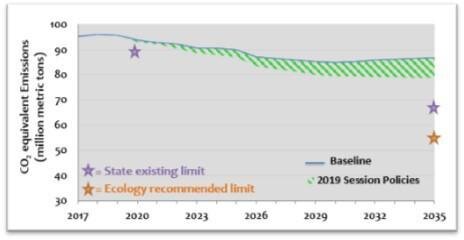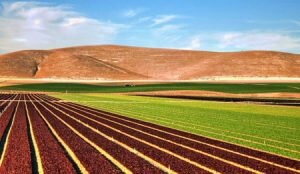Summer Update
CarbonWA's Sustainable Farm Campaign is Growing!
If you were following along last winter and spring, you might have seen the we were busy supporting and influencing a myriad of climate bills including SB 5947, a sustainable farming bill. CarbonWA helped construct SB 5947 and spearheaded the campaign for its passage. With bipartisan support, led by Senators McCoy (D) and Schoesler (R), testimony from many in the farming community, and a well designed bill, it sailed through the Senate in just 17 days. However, after passing the Senate the bill stalled in the House when Democrats and committee Chair Brian Blake declined to advance the bill. The primary opponents the Potato Commission and the Farm Bureau called on the legislature to fund a $30,000 study bill review the legislative proposal over the interim rather than advancing the bill in 2019.To get the bill over the finish line, we are launching an interim campaign designed to cultivate and grow interest among farmers and rural communities, while collecting input to strengthen and improve the bill for 2020's legislative session. We are also hiring a campaign manager to spearhead our work to build support and awareness in the farming community. (Thanks to all whose donations have made this possible.) You can help by:
1) Sharing the job description with potential candidates who have political experience and farming ties.
2) Making a donation (click here) to our sustainable farms effort.
3) Connecting us with farmers who may want to provide input, learn more, or support this campaign (send inquiries to info@carbonwa.org).
Analysis Shows Legislature Puts Modest Dent in Emissions in 2019
We push the hardest when the door unlocks, and that’s what makes this a critical time to push for big climate-change policies in Washington state.The 2019 legislative session produced some nice wins as a package of new laws helped unlock the Legislature’s action on climate change. These policies paved the way for (1) 100-percent clean electricity by 2050, (2) incentives and infrastructure for electric vehicles, (3) the phasing out of hydroflurocarbons, (4) stronger standards for clean buildings, (5) increased efficiency of appliances, and (6) the promotion of biochar. Carbon Washington is encouraged by these laws and takes particular pride in our role in the Youth Lobby Day and in passing the biochar memorial. Even as we celebrate these successes, we see the substantial work yet to come.Our friends at Low Carbon Prosperity Institute (LCPI) used their GHG Explorer model to take a look at how this year’s suite of legislative action stacks up. As shown in the model below, the big push on addressing Washington’s carbon emissions remains ahead of us, not behind. One caveat is that modeling this is tough, and each bill contains a number of assumptions behind it.Still, acknowledging that there is a margin of error in play, the explorer shows that the laws passed this year will reduce our GHG emissions by 10 percent or so.LCPI Model of 2019 Legislative Climate Impact The bottom line: We only unlocked the door to climate action this year — we didn’t get through it. We must push forward with big efforts on transportation and industrial emissions, and forest and farmland sequestration. Carbon Washington is here to see this work to completion.
The bottom line: We only unlocked the door to climate action this year — we didn’t get through it. We must push forward with big efforts on transportation and industrial emissions, and forest and farmland sequestration. Carbon Washington is here to see this work to completion.
Carbon Pricing Moving Forward in Utah, Backward in Oregon
Utah carbon tax initiative update (!) A group called “Clean The Darn Air” is collecting signatures on a ballot initiative in Utah to create a carbon tax, with 80% of the revenue used to reduce existing taxes (including eliminating the state sales tax on groceries), and 20% used to reduce local air pollution (which is among the worst in the country) and promote rural economic development. You might recognize CarbonWA founder, Yoram Bauman, as one of the leaders behind the effort. Visit the website here to read a policy summary and donate.Meanwhile, in Oregon, a Cap & Trade bill fell just short of passage when Republicans left town, denying Democrats the quorum necessary to proceed. Despite having a supermajority in both chambers, the Oregon Senate Democrats ultimately wilted and declared the bill dead for the session. The Nation reported that corporate money may have been a motivating factor in the Republican walkout, as was Boeing's pressure on a democratic swing vote to kill the bill. It is difficult to draw a clear lesson from this story- aside from the sheer difficulty in arriving at a bipartisan consensus when it comes to carbon pricing.As always, your donations power our progress — and we spend every penny carefully. Thanks so much for your support.Onward!From the whole Carbon Washington team, Note that regular donations through the above links and the CarbonWA website support a political action fund that is not tax deductible.If you wish to make a tax-deductible gift to the Carbon Washington Foundation to support non-political outreach, education, and research, you can do so here.

